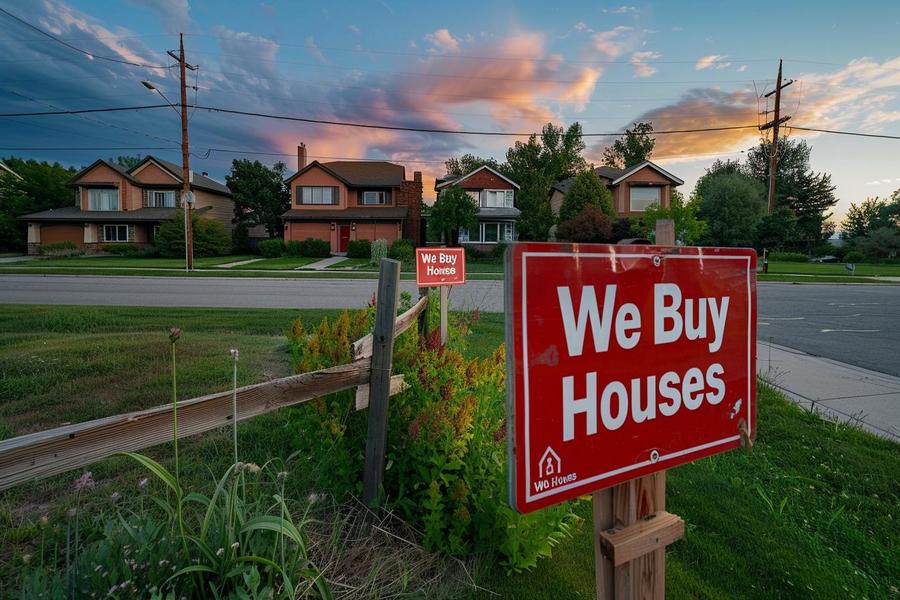Deciding who leaves the house in a divorce is tough. You want fair answers. This guide dives into what happens to your home when you split. We cover if you must move out right after divorce papers hit your hands and how kids affect who stays. We also look at money stuff and legal bits about leaving. Plus, we talk about staying safe if violence is a worry. Lastly, we share tips on finding a new place. Let's make this clear and simple.
TL;DR
- You're not forced to move out immediately after receiving divorce papers, to maintain stability for children.
- Temporary orders may dictate who stays in the marital home during proceedings.
- Final decisions on the home consider children's needs, financial ability, and parental roles.
- Discussing housing arrangements can benefit children, reducing stress and maintaining routines.
- Financial implications of moving include potential loss of rights and additional costs.
- Mortgage payments may be shared during divorce, with final payment responsibilities decided later.
- Domestic violence can lead to immediate legal actions to protect victims.
- Multiple options for temporary housing exist during divorce, with long-term solutions requiring careful budgeting and planning.
What Happens to the Marital Home During Divorce Proceedings?
Is Moving Out Necessary Immediately After Being Served Divorce Papers?
No, you do not have to move out right after you get divorce papers. Courts do not order you out unless there’s a specific direction or if there's proof of harm like violence or threats. It's usually best for you to stay, particularly if kids are living at home. This keeps things more stable for them during the tough times of a divorce.
How Are Temporary Orders Regarding the Marital Home Handled?
After the initial papers, a court may issue temporary orders. These orders decide who can use the home while the divorce is still going on. Remember, these are not final decisions. They just last until the final choices are made in the divorce.
What Factors Influence the Final Division of the Marital Home?
Lots of things affect who finally gets the home. These can be who wants it more, who can afford to keep it, or who has the kids. A judge will look at all these details to decide. Remember, each case is unique. So the final choice can be different depending on the situation.
Knowing all this helps you see why it's crucial to talk to a skilled divorce lawyer. They can guide you based on your own needs and help you know what steps to take next.
How Does Custody of Children Affect Who Stays in the Marital Home?
What Role Do Children Play in Deciding Who Stays in the House?
Kids often guide who stays in the house. Courts see what’s best for them first. If kids have school and friends close, this might mean one parent stays to keep life stable. A parent who most often takes care of the kids may also stay. This helps keep their routine safe and sound.
Courts think about many things. They look at who looks after the kids day to day. They think about who can best give care and a good home right at that moment. Sometimes, it works best if the kids don't move at all.
Can Negotiating Housing Rights Benefit the Children Involved?
Yes, talking things out can help kids a lot. When parents talk about who lives where, they can make choices good for their kids. This deal might keep kids in their home so they don't have to switch schools or lose close friends. This kind of talk can make sure that the change is smoother.
Talking also can avoid big fights. This means less stress at home which is way better for the kids. It could set a plan about not just who lives where. It might also decide visits and how to take care of other needs.
Related Links:
–Can You Sell a House with a Mortgage? Know How
–Should I Sell My House and Rent? Pros & Cons
Financial and Legal Considerations When Leaving the Marital Home
What Are the Financial Implications of Moving Out?
Moving out can mean extra costs. You might pay for a new place and still cover home loans. Think hard before you pack up, especially if kids live at home. Kids make it complex! You might lose some rights to the house if you leave.
Staying can bring upsides. It could help you keep the house later. But leaving could keep peace if things are tough at home.
How Are Mortgage Payments Divided During a Divorce?
Courts look at who can pay and who stays in the home. You might still pay part of the mortgage if you move out. This helps protect your investment in the house.
Both sides usually split the loan payments while the divorce is on. Later, the court decides who pays moving forward based on who keeps the home.
Leaving the marital home has big impacts. Always talk to a lawyer to get the right steps for your case. Check out "Who Needs to Leave the Home in a Divorce?". They have the facts on who should move out and how to handle home payments.
Every choice in divorce is key. Know your rights and weigh your options well. This protects you and your interests in the long run.
Addressing Domestic Violence and Safety Concerns
How Does Domestic Violence Impact Marital Home Decisions?
In cases of domestic violence, safety comes first. The court may order one person to leave to keep everyone safe. If there are threats or harm, this becomes a quick decision.
What Legal Protections Exist for Spouses Needing to Leave Due to Safety Concerns?
Laws help protect those who face danger at home. You can get court orders for protection that might demand the violent spouse to move out right away. These ensure you stay safe while dealing with home and divorce issues.
Planning for Transitional and Future Housing
What Are Your Options for Temporary Housing During Divorce?
You have several choices for housing if you're facing a divorce. You can stay with family or friends. You might rent a place. Short-term rentals can help too. Each option has its pros and cons. Staying with people you know keeps costs low. Renting gives you space but costs more. Short-term rentals offer flexibility but can be expensive. When choosing, think about cost, comfort, and the impact on your family.
Strategies for Finding Affordable Housing Post-Divorce
Finding a place to live after divorce can be tough. Start by looking at your budget. See what you can afford. Talk to local real estate agents. They know the market and can find houses that fit your budget. Online platforms also list affordable housing options. Remember, your needs may change, so consider different types of housing. This approach helps you find a place you can afford and like.
In this post, we covered how divorce affects the marital home. We looked at if you must move out, how kids play a role, and dealing with money and safety issues. We also talked about finding new housing. My final thought? Knowing these points helps you make smart choices about your home during a tough time.














